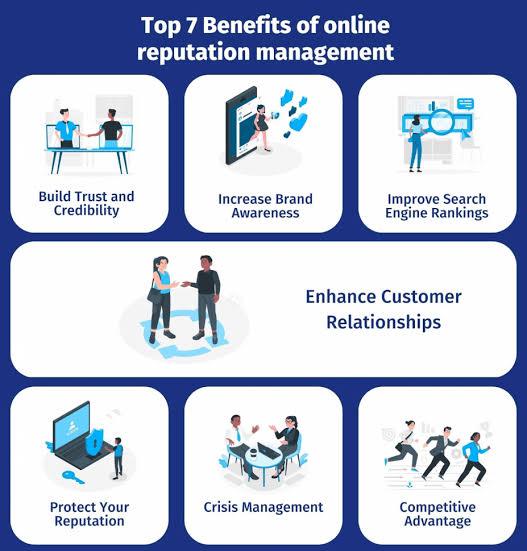The Power of Online Reputation Management (ORM)
Introduction
In today’s digital age, the online reputation of businesses, brands, and individuals holds immense power. With the proliferation of social media platforms, online review sites, and search engine results, managing one’s online reputation has become crucial. This blog post explores the significance of Online Reputation Management (ORM) and its impact on businesses and individuals alike.
Why ORM Matters
The digital landscape has transformed the way people perceive and interact with businesses and individuals. Online reputation plays a pivotal role in shaping consumer decisions, influencing brand loyalty, and determining trustworthiness. Studies show that a significant percentage of consumers rely on online reviews and search engine results before making purchasing decisions. Therefore, maintaining a positive online reputation is paramount for businesses looking to thrive in today’s competitive market.
Understanding Online Reputation Management (ORM)
Your online reputation is the perception of your brand in the digital realm. It encompasses everything from customer reviews and social media mentions to news articles and blog posts. Online Reputation Management (ORM) involves actively monitoring and influencing these conversations to shape public perception positively.
The Impact of ORM on Businesses
Online reputation directly influences consumer trust and purchasing decisions. A study by BrightLocal revealed that 84% of consumers trust online reviews as much as personal recommendations. Therefore, businesses with a positive online reputation are more likely to attract customers and foster loyalty.
Components of ORM
Effective ORM comprises several key components that work together to shape and manage one’s online presence. Monitoring online mentions, reviews, and comments is the first step in understanding how a brand or individual is perceived online. Responding to feedback, both positive and negative, in a timely and professional manner is essential for building trust and credibility. Additionally, content management and SEO optimization play crucial roles in controlling search engine results and promoting positive online content.
Key Components of ORM
Effective ORM comprises several components, including:
- Monitoring: Regularly monitoring online mentions and reviews.
- Engagement: Engaging with customers and addressing feedback promptly.
- Content Management: Creating and curating content to highlight positive aspects of your brand.
- SEO Optimization: Optimizing content to ensure positive search engine results.
Strategies for Effective Online Reputation Management (ORM)
Managing your online reputation requires a proactive approach. Here are some proven strategies to elevate your ORM efforts:
1. Establishing a Strong Online Presence
A robust online presence across various platforms enhances brand visibility and credibility. Maintain active profiles on social media networks, review sites, and business directories to engage with your audience effectively.
2. Encouraging Positive Reviews
Encourage satisfied customers to leave positive reviews and testimonials. Offering incentives or creating loyalty programs can incentivize customers to share their positive experiences.
3. Addressing Negative Feedback Professionally
Negative feedback is inevitable, but how you respond to it can make all the difference. Address criticism promptly and professionally, demonstrating your commitment to customer satisfaction.
4. Creating Compelling Content
Publishing high-quality content not only showcases your expertise but also helps push negative content down in search engine rankings. Invest in content marketing strategies that resonate with your target audience.
5. Leveraging Influencer Marketing
Collaborating with influencers can amplify your brand’s reach and credibility. Partnering with influencers relevant to your industry can help shape positive perceptions among their followers.
6. Monitoring Online Mentions
Utilize online monitoring tools to track mentions of your brand across the internet. Addressing issues as they arise allows you to maintain control over your online reputation proactively.
Benefits of Effective ORM
Implementing effective ORM strategies offers numerous benefits for businesses and individuals. A positive online reputation enhances brand perception, instills trust in consumers, and fosters brand loyalty. By actively managing their online reputation, businesses can increase customer satisfaction, improve search engine visibility, and protect themselves against reputation damage in the event of a crisis.
ORM Best Practices
To effectively manage their online reputation, businesses and individuals should adopt best practices that align with their goals and values. Establishing a strong online presence across various platforms is essential for reaching and engaging with target audiences. Encouraging positive reviews and testimonials from satisfied customers can help bolster credibility and trust. Engaging with the online community through social media and other channels enables businesses to build meaningful relationships and address customer concerns proactively. When handling negative feedback and criticism, transparency, and professionalism are key in maintaining credibility and resolving issues.
Case Studies or Examples
Real-life examples illustrate the power of ORM in action. Companies such as Starbucks and Airbnb have effectively managed their online reputation through proactive engagement with customers and swift responses to feedback. By implementing ORM strategies tailored to their brand values, these companies have successfully navigated online challenges and maintained a positive public image. Similarly, individuals can benefit from ORM by curating their online presence and leveraging platforms to showcase their expertise and professionalism.
Conclusion
In conclusion, Online Reputation Management (ORM) is a critical aspect of navigating the digital landscape. Whether for businesses or individuals, managing one’s online reputation is essential for building trust, credibility, and brand loyalty. By implementing effective ORM strategies, businesses can enhance their brand perception, increase customer satisfaction, and protect themselves against reputation damage. Likewise, individuals can leverage ORM to showcase their expertise and professionalism, ultimately shaping their online identity. As we continue to embrace the digital age, prioritizing ORM is key to success in today’s interconnected world.




